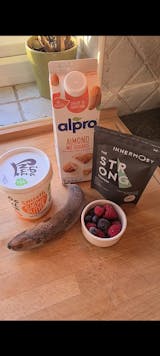In November 2018, two young children helped transform life for thousands of people around the country. Billy Caldwell, 12, and Alfie Dingley, 6, were both suffering from forms of extremely resistant epilepsy (also known as refractory epilepsy), and had previously found it near impossible to find appropriate treatments. The only thing they found that seemed to work was cannabis oil. However, the two had been denied access to this all-important solution due to the illegal status of cannabis in the UK.
Following the noise of the media attention that surrounded the boys’ cases, Sajid Javid, who was Home Secretary at the time, confirmed that regulations would come into force enabling doctors in England, Wales and Scotland to prescribe cannabis-derived medicine. Since making this groundbreaking decision, thousands of people across the UK have been helped by the positive benefits afforded by medical cannabis.
But the UK still has some way to go before medicinal cannabis is available to all. Dr Attam Singh from the London Pain Clinic is one of the pioneering doctors in the UK paving the way for promoting the use of cannabinoid or CBD products for medicinal purposes. As an expert in the assessment and treatment of pain, Dr Singh frequently teaches and trains others in the science of pain relief, while carrying out research to further develop this area of medicine. We recently caught up with him to find out how medicinal cannabis is slowly becoming more normalised, and how it’s already helping change lives.

Hi Attam! How did you first get involved with CBD research?
So chronic pain is my speciality, and over the past few years there’s been lots of evidence coming forward about the use of medicinal cannabis in treating it. At the London Pain Clinic, more and more patients were coming in and saying they’d heard about medicinal cannabis and were wondering if they could try it. Then, after November 2018, I started getting calls from pharmacies and licensed providers who said they had this medication and wanted to tell us more about it. Normally, doctors in the UK are quite conservative. We don’t tend to want to prescribe things we don’t know much about. But because there was a bit of information out there and people who were willing to experiment, it helped us expose ourselves to its possibilities.
So what’s the background to this growing trend of using medicinal cannabis for pain relief?
Things have changed quite significantly since November 2018. Alfie Dingley’s case was the main thing that helped change legislation in the UK and made medicinal cannabis legal. Since then, CBD medication has become a major talking point. It was already being used in other countries, so people were asking why we were denying it to our society here in the UK. It took just one case and the media coverage that came with it to make CBD medication more accessible and prescribable.
The main thing that changed was the actual concentration of the constituent parts of medicinal cannabis - CBD and THC. They were suddenly made more available and in more varieties and quantities than prior to 2018. You could get CBD oils before, but in very low concentrations, and it was difficult to get good quantities of THC. THC is what makes medicinal cannabis effective. However, it only became available for a very few select conditions on the NHS, such as epilepsy, nausea in cancer patients, and multiple sclerosis. We couldn’t prescribe it for all the conditions that medicinal cannabis had been found to be effective for.

However, it was allowed to be prescribed for other conditions outside of an NHS setting. People could get it as unlicensed medication, meaning it would be the responsibility of the prescribing physician, and it wouldn’t be supplemented financially by the NHS. Patients would have to pay. It's also important to note that medicinal cannabis can only really be prescribed if all other treatments have failed.
So why is medicinal cannabis so effective at treating chronic pain? How does it actually work?
CBD works on things called cannabinoid receptors (known as CB1 and CB2). The CB1 receptor is expressed mainly in the brain, but also in the lungs, liver and kidneys, while the CB2 receptor is expressed mainly in the immune system and hematopoietic cells (cells that give rise to other blood cells). THC works in a slightly different way. It releases inhibiting chemicals in the body, within the nerves and neuromuscular junctions where the muscles are. It basically turns the external ‘noise’ down a little.
Together, they give you a sense of wellbeing, there may be a sense of anxiety reduction, it can improve your appetite, and make you restful and calm. THC has an anticonvulsant effect and reduces things like muscle spasms and tightness, and a variety of other things as well. The reason the prescription stuff costs more is because it’s more potent.
Does CBD work on things apart from chronic pain illnesses?
Yes, plenty. It works on neurological conditions, gastrointestinal disorders, IBS, cancer, psychiatric disorders like PTSD and anxiety. It’s quite varied. It works on so many things, and that’s why it’s so beneficial.
And are there any side effects that people may experience while on it?
There’s always things to take into account. CBD can cause drowsiness and sleepiness, so we have to be careful with people who drive. It can also cause things like dry mouth, gastrointestinal problems, and tachycardia.
The first medicinal cannabis clinics have recently opened up in the UK. How are these helping the situation?
I was recently asked to work with the Medicinal Cannabis Clinic in London as a consultant, which I’ll start very soon. These clinics are set up in a way to provide medicinal cannabis with no loyalty to any type, but in order to provide it in an easy, accessible way for a variety of conditions. And it’s not just chronic pain - they have neurologists there, gastrointestinal specialists, psychiatrists. It’s supposed to be a one-stop shop private cannabis clinic. There’s currently a massive waiting list, and so far it’s going very well.

That sounds amazing! However, if people can’t afford to pay for the treatments, are there other options?
So there are currently products on the market in pharmacies and shops containing limited amounts of CBD and THC. THC is what gives you the high when you smoke cannabis, and that’s what seems to be the problem for legislation. When you go to a shop and buy a medicinal cannabis product, there has to be a restricted amount - less than 0.2%. You can buy stuff over the counter that actually has a decent amount of CBD in it, but the THC content will be quite low. THC and CBD work best together, so if the balance isn’t right, it won’t work as well.
There still seems to be quite a lot of stigma surrounding medicinal cannabis because of its relation to drug taking. Do you see this changing?
There’s been a lot of stigma since the 1930 and 40s, and when it was heavily demonised in the US. It continues today but it’s lessening by the day. We don’t encourage the smoking of it, but we do say you can vape it as it works quicker. It might be good for breakthrough pains like spasm attacks. What we’re talking about now is purified, clean, regulated medicinal cannabis. And we tend to avoid giving it to more vulnerable people, so people under the age of 20, or people with prior or acute drug problems.
My own personal thought on legalising it is that we have to be very careful. We take our lead from places that already have legalised it, and we wait to see what happens. In places like Canada and the US, they haven’t seen a massive increase in problems as a result. They haven’t seen all the hysteria and psychiatric issues that people assume will come from it. I think it will eventually be legalised.
Finally, is there anything people should be aware of when seeking medicinal cannabis treatments?
My line of advice is, if you have conditions which may be suited to medicinal cannabis, go and speak to your GP first and then consider seeing a physician as GPs cannot prescribe cannabinoids at the moment. One cautionary tenet I make a point about is about buying products over the internet. Always be wary, do your research properly, and speak to your GP first.
To keep up to date with Dr Singh’s work, make sure to follow the London Pain Clinic on Twitter and on Facebook.























